G.Skill Phoenix Blade (480GB) PCIe SSD Review
by Kristian Vättö on December 12, 2014 9:02 AM ESTRandom Read/Write Speed
The four corners of SSD performance are as follows: random read, random write, sequential read and sequential write speed. Random accesses are generally small in size, while sequential accesses tend to be larger and thus we have the four Iometer tests we use in all of our reviews.
Our first test writes 4KB in a completely random pattern over an 8GB space of the drive to simulate the sort of random access that you'd see on an OS drive (even this is more stressful than a normal desktop user would see). We perform three concurrent IOs and run the test for 3 minutes. The results reported are in average MB/s over the entire time.
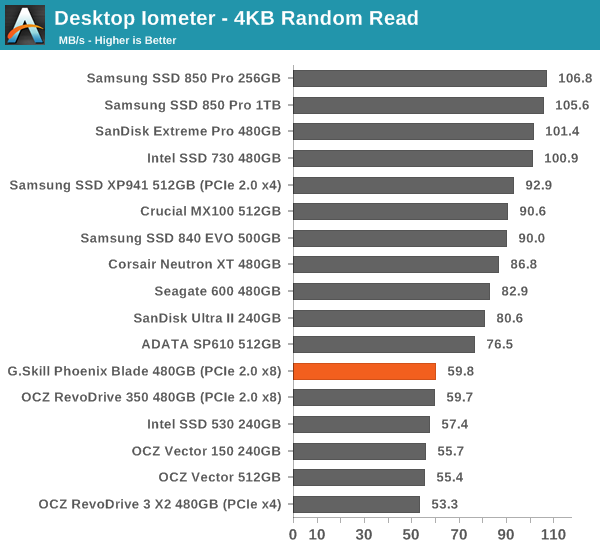
Random read speed is typical SandForce, which makes sense because the performance doesn't scale across multiple controllers at such low queue depths (QD=3 in this case).
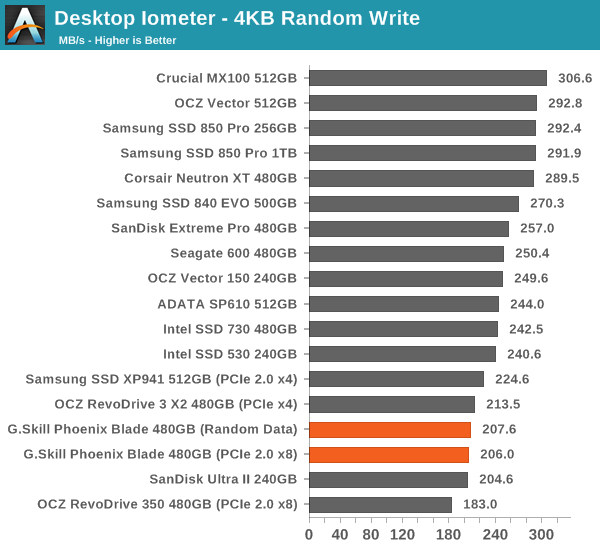
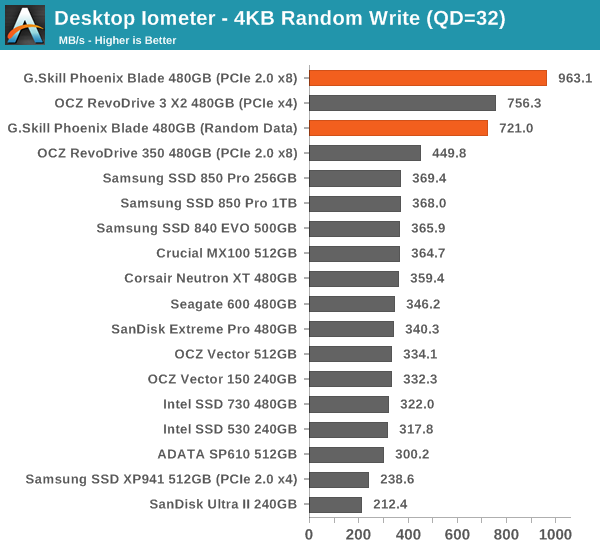
The same goes for random write performance at queue depth of 3, which isn't very high but is normal for SandForce based drives. However, the Phoenix Blade scales brilliantly with the queue depth and is considerably faster than the XP941 or RevoDrive 350.
Sequential Read/Write Speed
To measure sequential performance we run a 1 minute long 128KB sequential test over the entire span of the drive at a queue depth of 1. The results reported are in average MB/s over the entire test length.
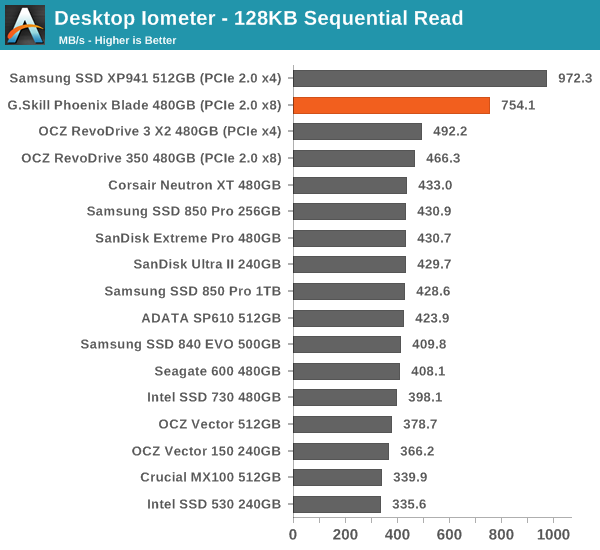
Sequential performance is also excellent, although the XP941 enjoys a slight advantage in sequential read performance. Overall the Phoenix Blade seems to be well optimized for parallelism -- much better than the RevoDrive 350 -- as it's able to provide substantially higher performance than SATA drives.
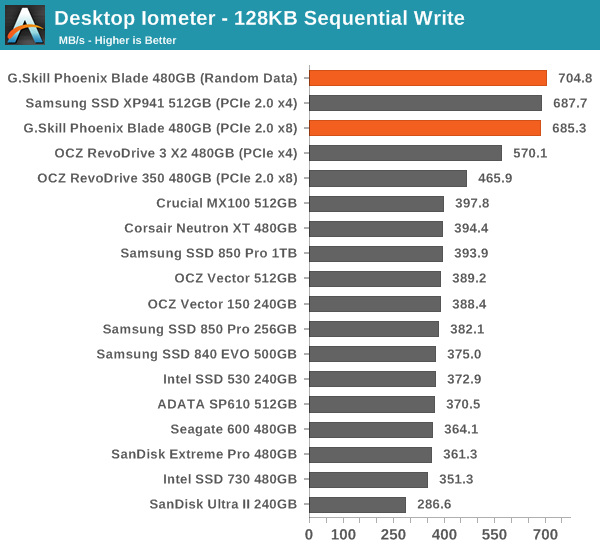
AS-SSD Incompressible Sequential Read/Write Performance
The AS-SSD sequential benchmark uses incompressible data for all of its transfers. The result is a pretty big reduction in sequential write speed on SandForce based controllers, but most other controllers are unaffected.
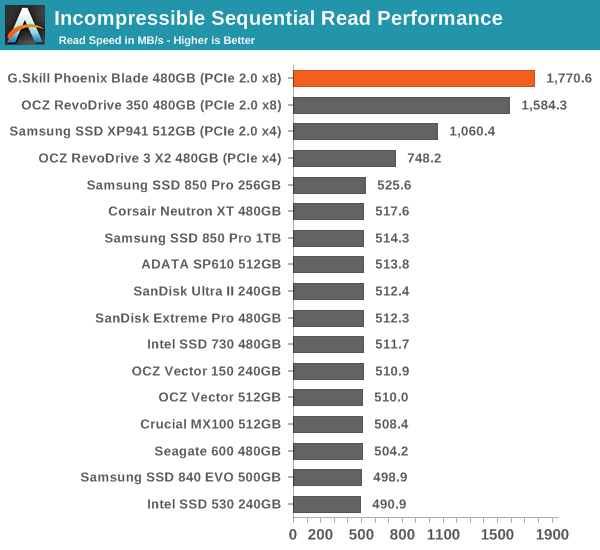
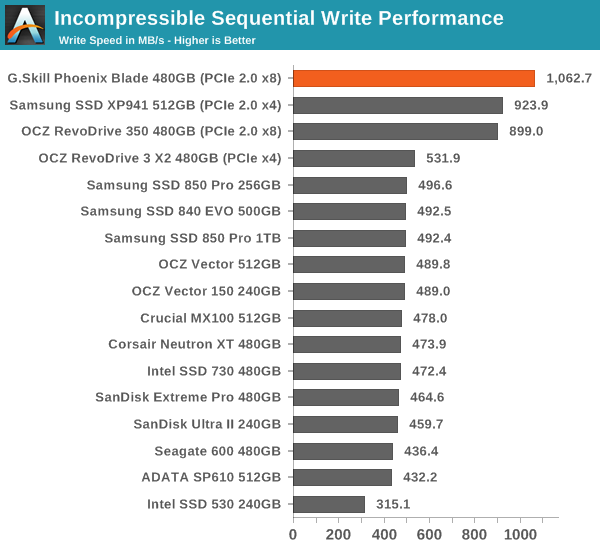










62 Comments
View All Comments
Supercell99 - Sunday, December 14, 2014 - link
Someone makes this now. Just saw a review recently, can't remember where. Very fast, but absurdly expensive. If Samsung or Intel got behind something like this and put out a design that could be easily mfg with commodity ECC ram, then the adoption rate would be high. Shops that need high file I/O, such as big data or database applications would benefit from a batt backed RAM disk card.gammaray - Monday, December 15, 2014 - link
why pay 700$ for this when i can grab samsung 850 pro for half?